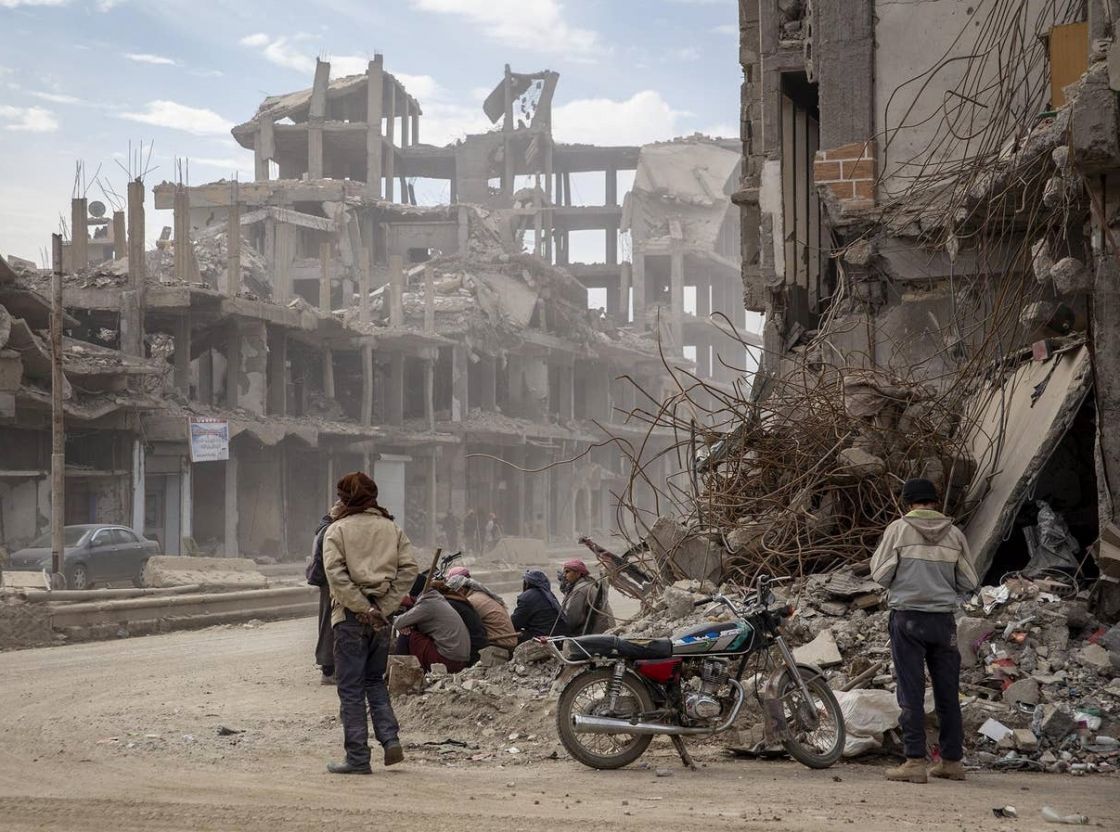- Articles
- Posted
What Does the West’s Behavior Change Towards the Regime Mean?
Many Syria-related events and moves have taken place over the past two months, and they are worth contemplating to place them in a broader and more real context than what “officials” say publicly.
At the outset, it is necessary to point out a few basic issues related to the Western slogan of “changing the regime’s behavior”:
First: The Western countries’ adoption of the slogan “overthrowing the regime” is fundamentally different from adoption of the same slogan by some of Syrian protestors. For the West, this slogan was not, in any way, intended to bring about real change in which the Syrian people determine their own destiny. Quite the contrary, the actual experience in Syria and elsewhere proves that the aim was to overthrow the entire state (as happened in Iraq and Libya).
Second: The transition from the discourse of “overthrowing the regime” to talking about “changing its behavior” practically began since mid-2016, and was initiated by Britain, and then became a unified discourse among Westerners.
Third: The historical framework for this transition from “overthrowing” to “behavior change” is the direct Russian military intervention, after months of which and the quick results it achieved against ISIS particularly, it became clear that it would prevent the collapse of the state in the same manner that happened in Iraq and Libya.
Fourth: Despite the West’s awareness of this matter, it continued to maintain the same objective and changed the tools, where the long-term militaristic attrition has become the primary tool in finishing off the country.
Fifth: The formation of the Astana tripartite, and its ability – through the de-escalation zones – to reduce the level of combat to the minimum, prompted the West to change the tools again towards economic attrition, and in this context, they benefited greatly from the decay and corruption of the prevailing system’s structure and its active participation in the attrition of Syria and Syrians. The West also benefited from the de facto partition, to which it effectively contributed by continuing to try to prevent the termination of al-Nusra and its attempts to whitewash it, and through the continuation of US military presence in the northeast.
Sixth: Reading the economic situation in Syria during the last few years allows us to discern the recent transition that we have referred to, that is, the shift of the center of gravity of the West’s work towards economic attrition, of which “Caesar” constitutes one of the main headings. In this context, during the years 2019 and 2020, the speed of economic collapse in Syria reached 34 times the average speed of economic collapse from the end of 2012 to the end of 2018.
Seventh: In our opinion, the West’s targeting (and the American-British-Zionist in particular) in Syria, before and after 2011, was on two levels: an upper limit of terminating its existence as a geopolitical unit, and a lower limit of terminating its functional role, which is translated by the position from The Zionist in particular. If reaching the upper limit has become very difficult with the presence of Russia on the ground, and the influence of the Astana tripartite, the security of the countries thereof is directly threatened by the division of Syria, then the lower limit is still achievable from the West’s point of view. Saying it more clearly: extracting Syria from the anti-Zionist stance is the essence of the practical translation of the slogan “changing the regime’s behavior”.
Putting things in order, the following can be said:
• The “concessions” and “facilitations” offered by the US, especially those related to Caesar, are, as the US itself says, coupled with “changing the regime’s behavior”.
• The American and Zionist understanding of changing the regime’s behavior revolves around rearranging the region in a manner suitable with the process of US withdrawal and repositioning in the greater conflict with China.
• If we use the same language as that of the “Caesar Act”, one of the objectives of the sanctions is to create “a government in Syria that respects…peaceful co-existence with its neighbors”.
• Rearranging the region within this meaning bears clear headings: The mobilization of the normalizing and non-normalizing Arab regimes in one field against Iran, Turkey and Russia; and the integration of the Zionist into this system as an ally.
The role that Jordan is meant to play these days, and Egypt to a lesser extent, and the “Arab” gas pipeline, as well as the work of the UAE and France, all of these roles, cannot be read correctly without taking into account all of the previous coordinates.
It remains to say that all these coordinates are the opinions and desires of one side within a connected internal, regional, and international conflict, and it is the weakest and retreating side in the historical sense despite all the manifestations of strength that it is trying to portray.
What is required from Syrians is to change the regime through a political solution and through the full implementation of UNSC Resolution 2254. What is required is a comprehensive radical change that changes everything that needs to be changed in Syria, that is, changing almost everything, while preserving the most fundamental matter, which is the role of Syria that Syrians formed with their blood, that is, the position from the Zionist. The required change is one that reinforces that position and pushes it forward, by creating the necessary material foundations for it, which is primarily restoring Syrians’ dignity, sovereignty, unity, and the unity of their country.



 Imad Tahhan
Imad Tahhan